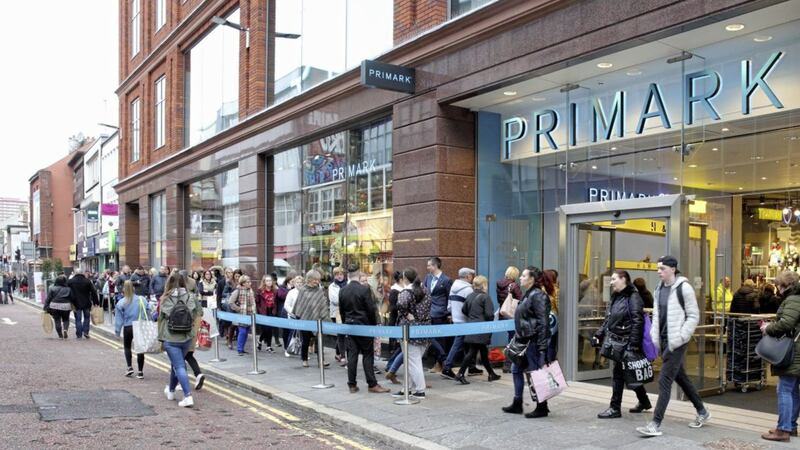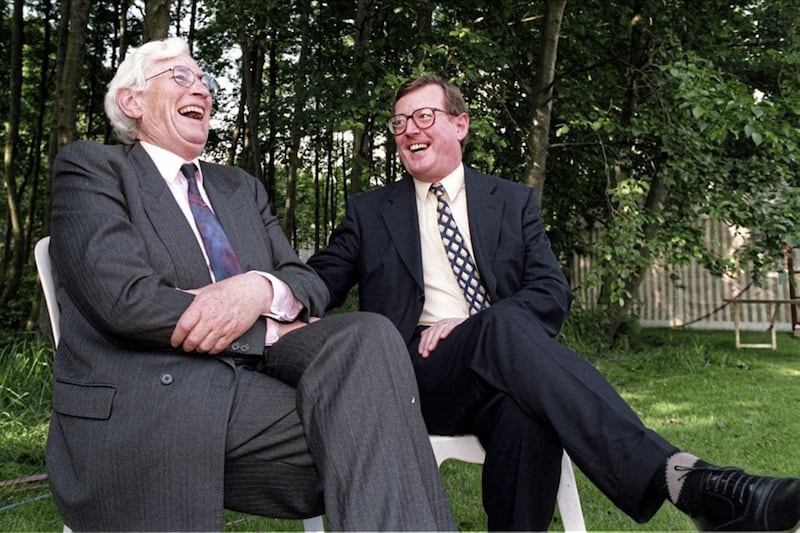MYSTERY and wonder is all around us at this time of year; magic and enchantment is in the air.
Primark got me thinking about this - more of that later - but my mind soon wandered in another direction.
The Christmas story itself - so familiar, yet somehow also so forgotten - is a mystery to the modern mind.
And no wonder. The virgin birth takes some explaining. And it's not every day that heavenly choirs of angels appear to shepherds on a Bethlehem hillside.
Nor do wise men - obviously in short supply these days - typically find themselves guided by a star for thousands of miles in search of a long-awaited king.
But the Christmas story's most profound mystery is found lying in the manger, wrapped in swaddling clothes - Jesus himself, the Christ-child, God-made-flesh, the baby born to die.
Theologians describe this phenomenon of God taking on human likeness as 'incarnation', but it seems to me that a better word is found in Matthew's gospel where he explains "how the birth of Jesus Christ came about".
In a reference to an Old Testament prophecy of Isaiah, Matthew writes: "All this took place to fulfil what the Lord had said through the prophet: 'The virgin will be with child and will give birth to a son, and they will call him Immanuel.'"
Helpfully, he goes on to explain that 'Immanuel' means "God with us" - three short words that capture the essence of how the divine humbled himself totally, not only taking on human form but also ultimately becoming, as St Paul says later, "obedient to death - even death on a cross".
The name takes on further richness because, as Matthew says, it points to how the birth of this Immanuel fulfils a prophecy made around 700 years earlier.
This pattern of promise-and-fulfilment, focused on Christ, is the rhythm that drives the Bible narrative forwards.
It can also help to demystify those parts of the Scriptures - including the Christmas story itself - that may appear mysterious or simply incomprehensible.

Biblical theology is one thing, but one of the biggest mysteries of our age must surely be the hysteria around Primark.
I readily accept that I am not in Primark's target demographic.
First, I dislike shopping. I cannot understand how otherwise sane people think that 'going to the shops' can be a recreational activity.
Second, which is linked to the first, is the inescapable fact that I am a man.
Even men who are men are increasingly trepidatious about admitting this in mixed company, for fear of being identified as part of the patriarchy which is responsible for all of society's ills.
But I don't think another man has ever asked me, "Here, do you fancy going down the town to look at the shirts in Next and the jumpers in M&S?"
When Primark's Belfast city centre store burned down, I made the mistake of thinking that this was Bad News simply because the location of the building meant that it would have a disastrous effect on neighbouring businesses and, through restricted pedestrian footfall, the wider city centre.
But I was wrong. Very wrong. A period of national mourning, it seems, was deemed to be the only appropriate response to the demise of Primark.
I do my best to try to understand 'difficult things' - you know, stuff like Einstein's Theory of General Relativity, Brexit, the difference between Ant and Dec, Martin Heidegger's contribution to philosophical hermeneutics, Ian Paisley's holiday arrangements and traffic flows on the Westlink and M1.
The allure of Primark, however, is beyond me.
I was in the Bank Buildings store once, eight years ago. I remember it as vividly as the birth of my son, though with none of the fondness.
I was dispatched to return a baby outfit someone had bought him, with instructions to swap it for something in the correct size. Fat chance.
Dante imagined the journey to hell was downwards, but he had clearly never been to the Primark returns desk; there's no need to go into the gory details, but after battling my way to the top floor I worked out that I needed to join a queue so long and angry that even Belfast International Airport would notice.
Eventually I reached the solitary operative at the counter. I was told, for reasons too dull to go into, my only option was to receive a refund.
She slowly counted out £2.48. I left, never to return.
Happy Christmas.









